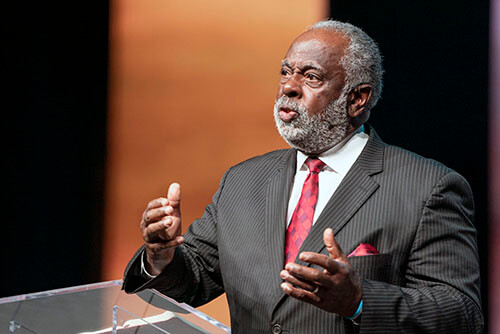"There are just enough gaps in the story to make it a dangerous one, as the interpreter is tempted to retell it with commentary on Jonah’s psychology."
By Donald C. McIntyre See also Part 1 and Part 2. A Case Study in Matthew 2:1–12 There are forty-seven verbal forms in this pericope; all but 10 verbal forms are perfective aspect. Of those ten forms that are not perfective, one is stative, two are...
Image: © Tavis Bohlinger by Donald C. McIntyre See also Part 1 Verbal Aspect has the Ability to Show Points of Emphasis and De-emphasis In Porter’s analysis of Philippian 2:5-11 the two verbal forms which are not in the perfective aspect are the...
by Donald C. McIntyre Verbal Aspect is Critical to an Accurate Apprehension of the Text Verbal aspect theory arose to prominence in 1989 and 1990 with the simultaneous work of Stanley Porter and Buist Fanning, who both sought to show how linguistics...
by Donald McIntyre Textual criticism is a hot topic among biblical scholars. The views on the discipline’s profitability span the extremes of being of crucial importance for serious scholarship and the opposing view of being hostile towards the...
"Teaching students to examine a passage for these oral conventions can achieve multiple pedagogical goals in graduate and undergraduate Bible courses."
"I want to teach in such a way that there is intra-trinitarian presence in teaching. If it is about the overarching plan of God, it is about the Holy Spirit revealing the Scriptures, and it is about Christ being magnified."
Stop preaching sermons on the OT that wouldn't pass muster in a Sunday School class. Preach with authority, preach with the best, preach with the men whose sermons lit the church on fire with illustrations that are still relevant today.
I have already offered thoughts for the preaching scholar concerning first things and meditation, as well as my suggested exegetical resources for preaching (including exegetical commentaries). Here I want to pass on my favorite theological...
Pastors of different types and in different contexts have varying amounts of time for “sermon prep.” We all know 5 hours is not enough, but most do not have the luxury of 20+ hours.
Dare I try to talk about the art of preaching when I am not a full-time preacher? I wondered about this before deciding to start a blog series on preaching. Perhaps it does seem a bit audacious. But what else are blogs for? My hope is simply to...
I read a book called Out of Context by Richard Schultz last semester for a seminary class. The author goes through common exegetical and interpretive mistakes in teaching the Bible, including those that famous preachers or authors have made, and...
If you are like me, then the thought of preaching or even speaking in public has been a life-long fear. Maybe you feel called to attend seminary but are worried about the class called “Homiletics.” Maybe you’ve even said to yourself, “How can I get...
If you were to ask most seminarians what their calling is, they would probably respond with something like, “I am called to preach.” For most seminarians this is true; however, I have had some recent experiences that leads me to question...













